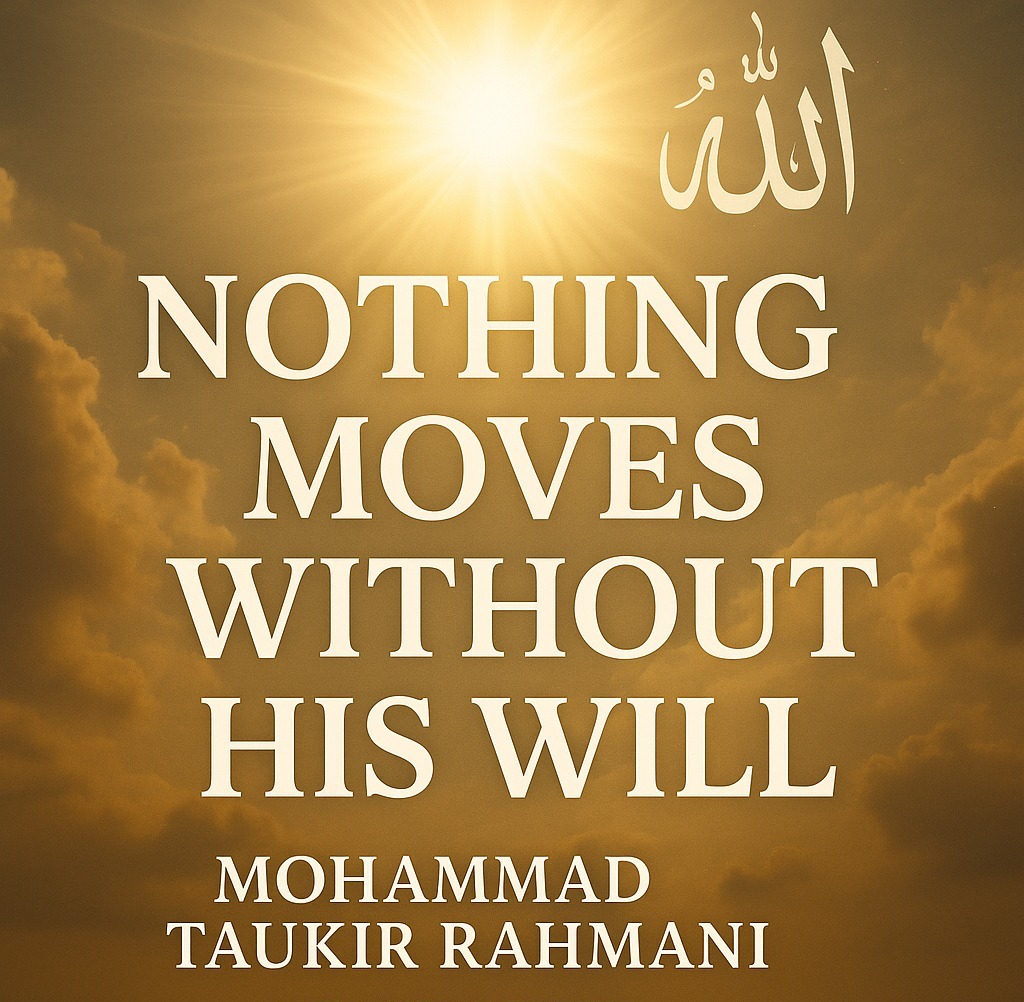
Nothing Moves Without His Will
Nothing Moves Without His Will
Mohammad Taukir Rahmani
EC Exclusive
In the vast landscape of human history, there are certain moments that transcend mere events — they become beacons of thought, merging intellect with faith, choice with destiny, and reason with revelation. One such illuminating incident emerges from the golden age of Caliphate under Umar ibn al-Khattab (RA).
As the Caliph journeyed toward Syria with his army, he reached the border town of Sargh, where news reached him of a deadly plague ravaging the region. Aware of the gravity of the situation, Umar (RA) sought counsel from the companions and eventually decided to return. It was then that the noble companion, Abu Ubaidah ibn al-Jarrah (RA), questioned him: “O Commander of the Faithful! Are you fleeing from the decree of Allah?” What followed was not just a reply but a profound exposition of divine will and human agency. Umar (RA) responded, “If only someone other than you had said that! Yes, we flee from the decree of Allah to the decree of Allah.” He then illustrated his point: “Suppose you have a camel and there are two pastures before you — one fertile and the other barren. Choosing to graze your camel in either is part of Allah’s decree.” (Sahih al-Bukhari, 5729)
This moment in history confirms a deeper truth — that destiny is not a rigid chain, but a divine system in which human beings are gifted with consciousness, choice, and will. The decisions made in the light of reason and faith are themselves threads in the fabric of destiny, woven by the hand of the All-Knowing.
The universe is not a chaotic assembly of moving parts, but a grand scripture of divine artistry. Every atom, every orbit, every heartbeat, and every demise is bound by an invisible order — an order ordained by the One who merely says “Be,” and it is. No entity rises or falls of its own accord; all follow paths precisely charted by divine will. As the Qur’an says:
“The sun runs on its fixed course for a term (appointed). That is the decree of the Almighty, the All-Knowing.”
(Surah Ya Seen: 38)
Indeed, every creature, animate or inanimate, is subject to this inviolable law. Death awaits every living being; mortality is the shared destiny of all. This truth whispers through the leaves, echoes in the silence of tombs, and ultimately claims us all. Yet this universal fate unfolds neither prematurely nor belatedly — everything occurs at its appointed time, never a moment sooner, never a second later. This is what we call destiny.
But destiny raises an eternal question: Is it a script already written — our lives but performances on a stage? Or does our effort, intention, and prayer shape its outcome? Destiny, as understood through the lens of revelation, is a divine system encompassing all possibilities, yet it honors human action. Even the Qur’an affirms:
“And you cannot will unless Allah wills.”
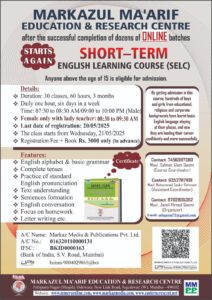
Here lies the turning point — the moment where human pride surrenders, and true servitude begins. It is for this reason that the Prophet Muhammad (SAWS) taught us to condition every intention and plan with the phrase, In Shā’ Allāh — “if Allah wills.” This is not a ritual utterance, but a declaration of spiritual humility and existential dependence.
Still, destiny and free will are not mutually exclusive. They are two branches of the same divine tree. Man has been given intellect and moral consciousness; he has been shown both the path of virtue and the path of vice. In this grand narrative of fate, there are pages left unwritten — left for us to inscribe with our choices.
And it is precisely here that du‘ā (supplication) enters as a powerful force. Prophetic traditions inform us that prayer can alter destiny. While the decree is written, it is not devoid of space for divine mercy to intervene in response to human yearning and action. The ink of fate includes the potential of change — a change that stems from heartfelt supplication, righteous deeds, and sincere repentance.
Thus, destiny is a celestial script, but God, in His infinite wisdom, has placed the pen of choice in human hands. We are not slaves of fate, but stewards of our own journey — empowered to ascend or fall, to build or break. This is where knowledge and philosophy, intellect and insight, planning and prayer — all converge upon a single truth:
“Nothing happens without the permission of Allah. Yet nothing truly blossoms without the mercy of Allah.”
You May Also Like
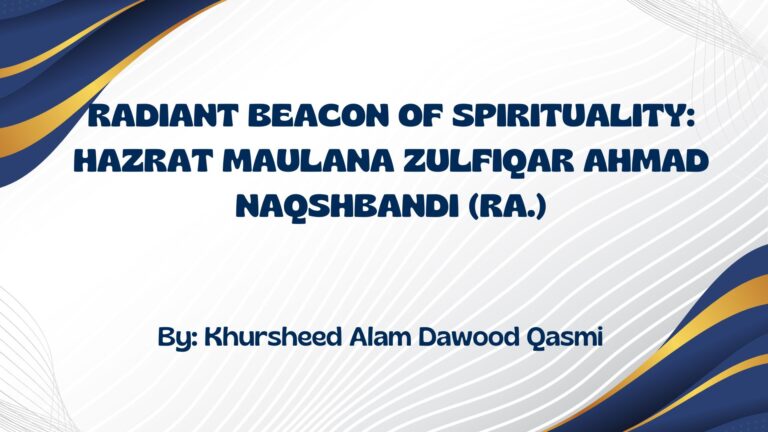 Articles
ArticlesRadiant Beacon of Spirituality: Hazrat Maulana Zulfiqar Ahmad Naqshbandi (Rah.)
By: Khursheed Alam Dawood Qasmi First Acquaintance with Peer Sahib: It was around the...
 Islam
IslamHuman Creation: Existence for the Sacred Trust of Earthly Vicegerency
Human Creation: Existence for the Sacred Trust of Earthly Vicegerency By: Mohammad Taukir Rahmani...
 Culture
CultureThe Flood of Heresy: A Manifestation of Ideological Colonialism and a Trial for Islamic Consciousness
The Flood of Heresy: A Manifestation of Ideological Colonialism and a Trial for Islamic...
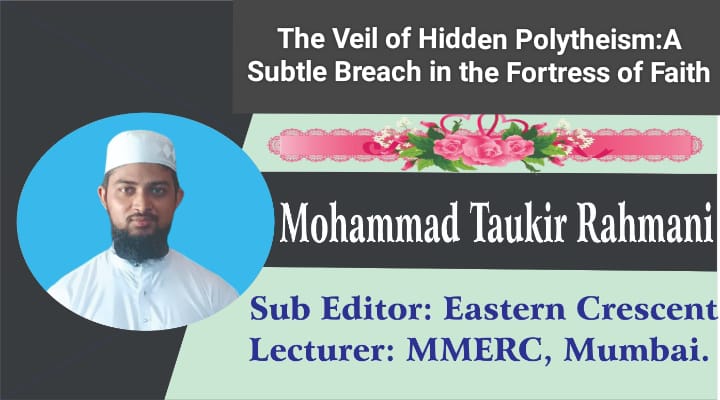 Islam
IslamThe Veil of Hidden Polytheism: A Subtle Breach in the Fortress of Faith
The Veil of Hidden Polytheism: A Subtle Breach in the Fortress of Faith By:...
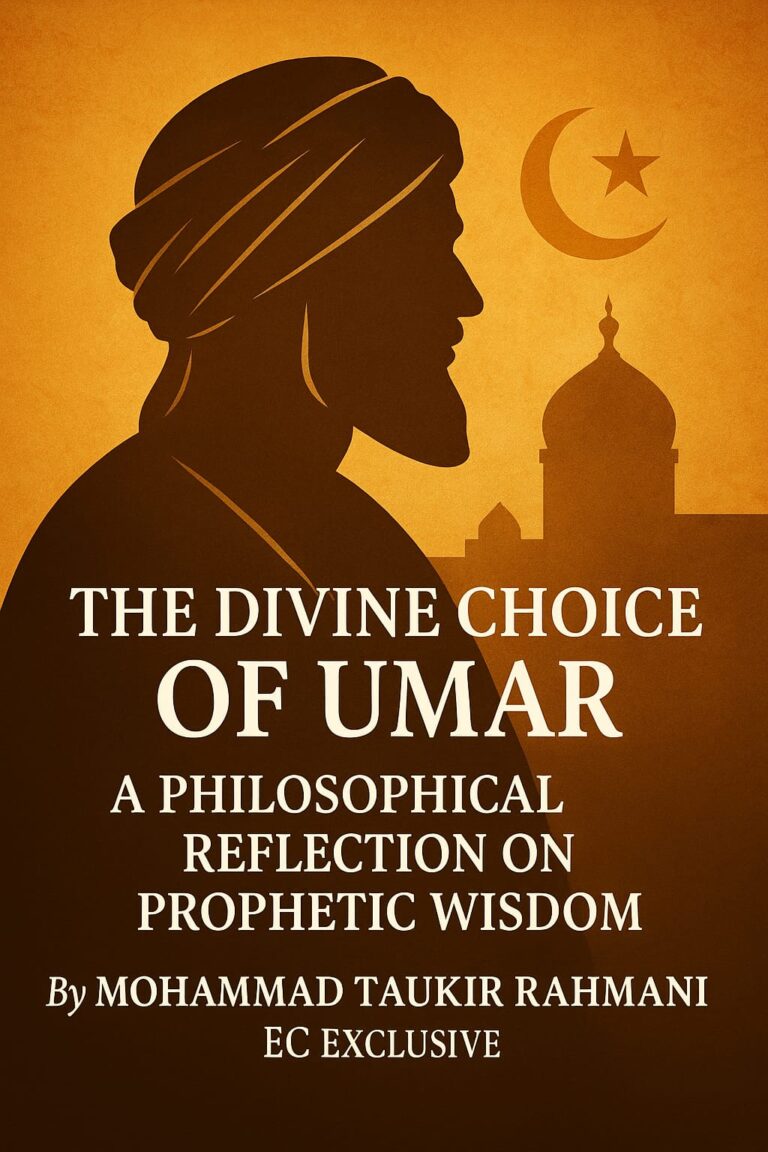 Islam
IslamThe Divine Choice of Umar: A Philosophical Reflection on Prophetic Wisdom
The Divine Choice of Umar: A Philosophical Reflection on Prophetic Wisdom By Mohammad Taukir...
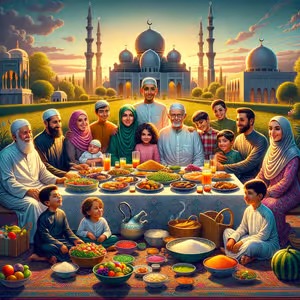 Islam
IslamThe Wisdom Behind Islamic Festivals: A Path to Social Harmony
The Wisdom Behind Islamic Festivals: A Path to Social Harmony By: Mohammad Taukir Rahmani...

Comments (20)
Leave a Comment
That is really attention-grabbing, You are an overly skilled blogger.
I have joined your feed and look ahead to in search of more of your magnificent post.
Additionally, I have shared your website in my social networks
Nice post. I was checking constantly this blog and I am impressed! Very helpful info specifically the final phase :) I take care of such information a lot. I used to be looking for this certain info for a long time. Thanks and best of luck.
This site (Eastern Crescent) has become my favorite place for quality relaxation.
If there is one place I trust to nurture my tired heart and overworked body.
Thanks a lot. After reading this fantastic write up I had a true moment for myself.
I found peace I didn’t know I needed through...
It’s always the first place I think of when I’m tired.
Even on my busiest day, a visit to Eastern Crescent helps me return to calm.
Let care for you, the way you care for others.
Looking for peace and healing?
Where comfort meets kindness is your healing space.
Sometimes, healing begins with silence—and offered
the quiet I’d been searching for.
I savour, cause I found just what I was taking a look for. You've ended my 4 day lengthy
hunt! God Bless you man. Have a nice day. Bye
you're really a good webmaster. The website
loading speed is incredible. It kind of feels that you are doing any distinctive trick.
Moreover, The contents are masterwork. you have performed a
wonderful job on this matter!
Howdy! This article couldn't be written any better! Reading through this article reminds me of my
previous roommate! He constantly kept talking about this.
I am going to forward this post to him. Fairly certain he will have a good read.
Thanks for sharing!
If you desire to grow your familiarity only keep visiting this
web page and be updated with the newest information posted here.
One of the best ways I care for myself is getting a massage at Eastern Crescent
It’s always worth it.
It was my first time trying a women-only massage, and I was deeply moved
by the thoughtfulness at this site.
This paragraph is truly a good one it helps new the web people, who
are wishing for blogging.
excellent post, very informative. I ponder why the
other experts of this sector don't notice this.
You should continue your writing. I'm sure, you have a great readers' base already!